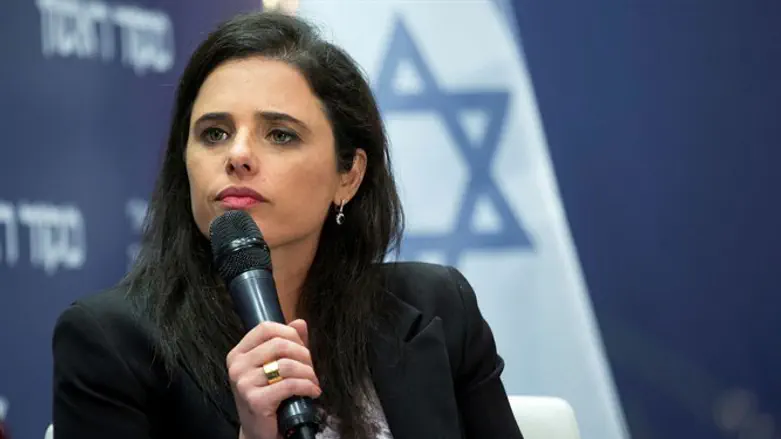
Justice Minister Ayelet Shaked on Wednesday referred to the ruling of the Labor Court that ordered the cancellation of a gender separated civil service course for the haredi population, and said that the ruling points to the judge's lack of understanding about social processes in the haredi sector.
"The ruling of the Labor Court judge regarding separate courses for men and women shows a lack of understanding of both haredi society and of social processes that are taking place," Shaked said at the annual conference of the Haredi Institute for Public Affairs, a research institute that examines haredi society.
Shaked added that "the government has set itself an important goal of integrating haredim into employment. Integration of haredim into the workforce is critical to the existence of the state. If the condition for bringing haredim into the workforce is gender separated studies, I’m ready to pay the price.”
As mentioned, the Labor Court of the Civil Service Commission ordered the addition of at least ten women to a civil service course, held with gender separation to encourage the integration of haredim into the civil service. The decision was subsequently overturned by the National Court.
Shaked criticized the Supreme Court's intervention in the draft law and said: "The Supreme Court should not have intervened in the draft law. The intervention only hinders the social process from happening. The draft of haredim won’t be forced, but rather will be part of a societal process.”
Shaked added that "it is important to me that the haredi sector be within the system. In the past three years I have made efforts to locate haredi candidates who could be appointed judges and I was also happy to appoint Chavi Toker as a judge. Today, the State Attorney, and Justice Ministry in general, have haredi workers. You need to make sure that more haredim seek judicial positions.”
Also during the conference, a project was revealed which measures quality of life in Israeli society. The project developed parameters to examine quality of life among three Israeli subpopulations - haredim, non-haredi Jews, and Arabs.